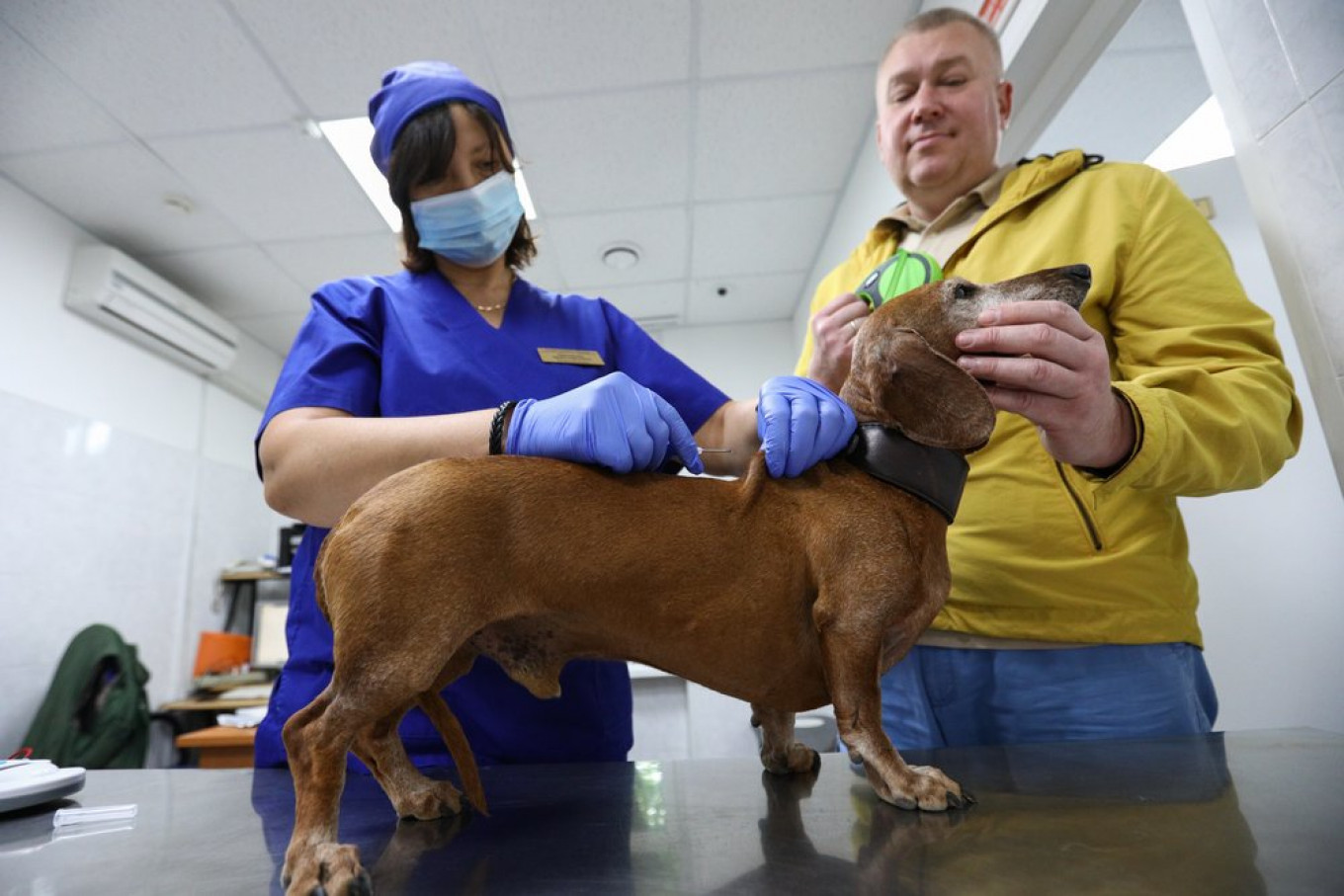
Russia has approved what it says is the world’s first coronavirus vaccine for pets, the state veterinary service said Wednesday.
Carnivac-Cov underwent clinical trials on dogs, cats, mink and other animals starting in October, Russia’s Federal Service for Veterinary Supervision, Rosselkhoznadzor, said in a statement.
Mass production of the injectable suspension could be launched as early as April, Rosselkhoznadzor’s deputy head Konstantin Savenkov said.
“The results allow us to conclude that the vaccine is harmless and has high immunogenicity, since all tested animals developed coronavirus antibodies in 100% of cases,” Savenkov said.
He added that scientists are still studying Carnivac-Cov’s long-term effectiveness, though it is thought to provide protective immunity to pets for at least six months.
“Russian scientists believe that the vaccine’s use can prevent the virus from mutating, which most often occurs during interspecies transmission,” Rosselkhoznadzor said.
Carnivac-Cov is expected to cost around 500 rubles ($6.60), Rosselkhoznadzor reportedly said.
Experts have said that domestic animals can be infected by Covid-19 but not pass it on to humans.
A number of animals around the world were reported to have tested positive for Covid-19, including the millions of mink culled in Denmark and the Netherlands amid fears of the first known animal-to-human transmission.
Rosselkhoznadzor’s announcement follows a World Health Organization (WHO) expert report published Monday saying it was “likely to very likely” that Covid-19 jumped from bats to humans via a yet-unknown intermediate host. Initial suspicion fell on snakes and endangered pangolin anteaters as the “missing link” of the global pandemic.
The agency said that agriculture businesses in countries including the United States, Canada and Singapore, as well as Austria, Greece and Poland, have expressed interest in Carnivac-Cov.
Russia has rolled out three human Covid-19 vaccines so far, though its national vaccination campaign has lagged amid widespread skepticism of the homegrown jabs.
Leave a Reply